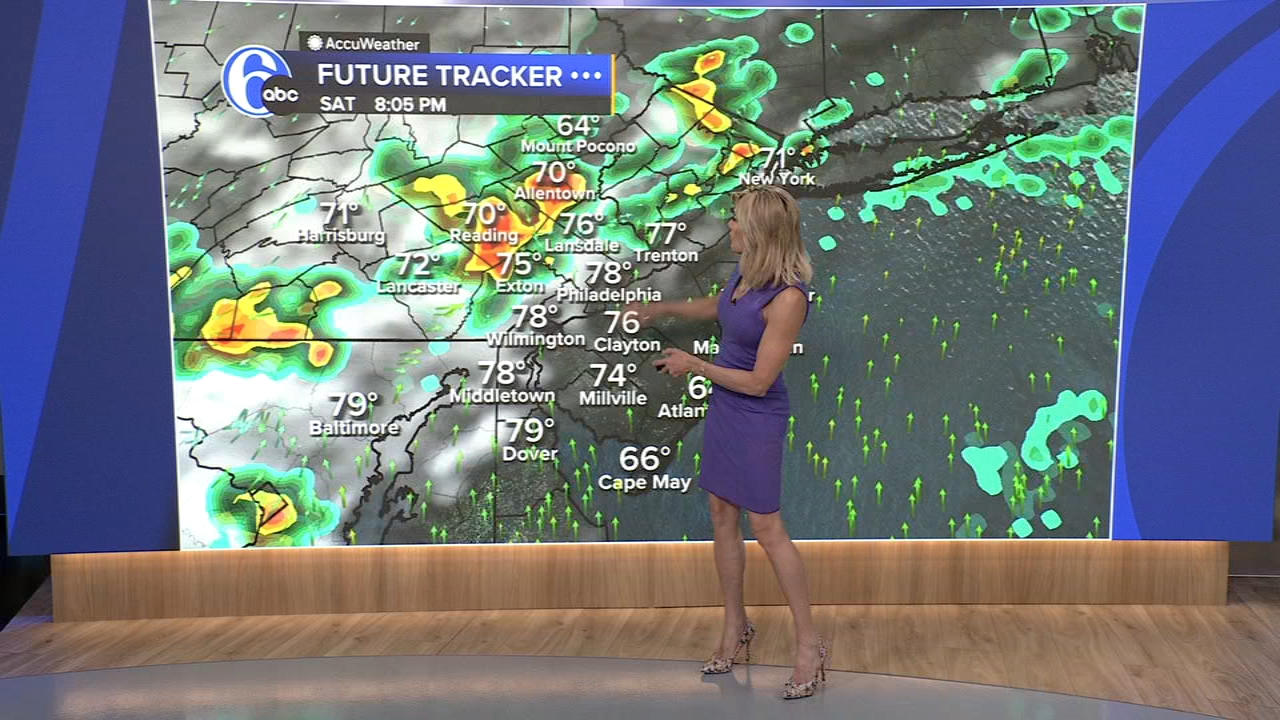Trump tariffs: Villanova professor weighs in on potential impact
"The impacts could be quite immediate," said Jonathan Doh, the Rammrath Chair in International Business at Villanova University.

PHILADELPHIA (WPVI) -- Starting Tuesday, tariffs will be placed on products coming from the United States' three largest trading partners.
The Trump administration is implementing a 25% tariff on goods from Mexico and Canada, plus an additional 10% tariff on Chinese goods.
Tariffs of this magnitude would likely increase prices paid by U.S. shoppers since importers typically pass along a share of the cost of those higher taxes to consumers, experts said.
RELATED: Dow drops nearly 650 points after Trump announces Canadian and Mexican tariffs
"The impacts could be quite immediate and quite profound," Jonathan Doh, the Rammrath Chair in International Business at Villanova University, told Action News.
Doh, an expert in international business, said that mostly everything we buy will likely be impacted by these higher tariffs.
"If you think about raspberries, or spinach, or basil, is actually coming from outside the country and grown hydroponically, so those will be hit," he explained.
Roughly 90% of avocados eaten in the U.S. last year originated in Mexico, USDA data showed. Other products with a high concentration of Mexican imports include tomatoes, cucumbers, bell peppers, jalapeños, limes and mangos.
SEE ALSO: Trump plans tariffs on Mexico and Canada for March 4, while doubling existing 10% tariffs on China
Economists estimate the tariffs could lead to a rise in prices for a number of goods, indicating grocery bills could get even higher in the coming weeks.
Doh also said that with tariffs planned for steel and aluminum imports, the cost of vehicles could rise.
"We import a lot of steel and aluminum from Canada and elsewhere, which becomes inputs into other products like automobiles," Doh said. "So, I would say the auto industry would be one of those industries that would be worst hit."
On Monday afternoon, President Trump doubled down on his decision to implement the tariffs, calling them necessary. He said he believes they could actually incentivize businesses to come to the U.S.
President Trump told reporters, "What they will have to do is build their car plants, frankly, and other things in the United States, which in that case they have no tariffs."
According to the White House, the president is using this measure as a tool to secure the borders and stop drugs from coming into the country.
Doh said the hope is that these tariffs are just being used as a negotiating tactic to "try to extract the kind of concessions the administration wants from Canada and Mexico."
He said one of the concerns with these tariffs is the possibility that Canada and Mexico could retaliate with tariffs of their own.
Doh said there isn't much consumers can do to prepare for the potential impacts "other than to watch their wallet and make sure they are preparing for the reality of higher costs."
"One of the strongest elements of the U.S. economy is consumer spending. For better or worse, we don't save a lot, but we sure spend a heck of a lot. And if we start spending less, that spells trouble," he added.











